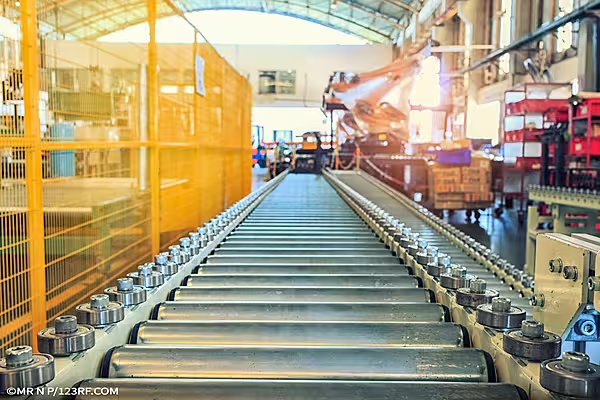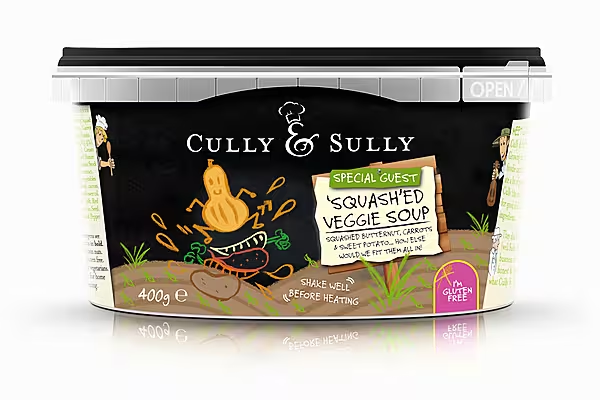The COVID-19 pandemic has had a huge impact on the food industry in terms of production, processing, and delivery this past year.
Now, with Christmas just weeks away, fresh produce suppliers will be preparing for additional strains on their already buckling supply chains. Increasing labour shortages and food import disruptions are setting alarm bells ringing, with people being warned that certain festive items may be in short supply.
As distribution centres see their operations being heavily impacted, many food suppliers have increasingly looked to automated solutions to improve their overall efficiency. There has been a significant reduction in the number of people managing critical logistical operations, and a move towards processes controlled by self-learning software running sophisticated, automated solutions.
The knock-on effects of this are significant improvements in food safety, resulting in reduced wastage and risk to public health.
Data Analytics Delivers Food Safety Standards
Produce suppliers are among those that must maintain food safety standards to the highest levels throughout the supply chain. The food handling process must be stringently managed to guard against cross contamination, which can lead to produce being thrown away or, worse, affected produce not fit for human consumption entering the food chain.
There are over half a million instances of foodborne disease infections in the UK each year, and the retail industry must do all it can to ensure these figures are kept to a minimum.
One way in which technology is helping grocery suppliers manage the challenges of food safety is through the data analytics that oversee the storage of various food products requiring specific storage temperatures and packaging to maintain freshness. Software controls the inventory levels, recognises use-by dates, and separates food groups to reduce the risk of contamination.
Distribution centres have traditionally relied on people to maintain food storage temperatures and correct handling standards. This process has been reactive and subject to human error, which has led to spoilage. However, by introducing automated software that continuously collects and analyses data gathered from inbuilt sensors, temperature modifications are made automatically as soon as an irregularity is detected.
Automation Delivers Cost Savings
Automation within a distribution centre has the power to deliver significant time and cost savings. It is imperative that fresh produce is picked and packaged with precision, speed, and accuracy.
Technology (such as AutoStore™ by Dematic) can optimise storage density to its maximum capacity while tracking required food items.
This dramatically speeds up the retrieval process, as workers are no longer required to manually transfer individual pallets to picking stations. Automated systems also reduce unnecessary food handling by employees, which decreases the risk of contamination.
Fresh Meat Presents Complex Challenges
The storage and distribution of fresh meat can be one of the most complex challenges facing grocery suppliers and retailers. In the UK, the Food Standards Agency reported 2.4 million cases of foodborne disease in 2018.
The meat industry has experienced considerable volatility in recent years. Not only are alternative proteins challenging the dominance of traditional meat products, but buying behaviours are shifting. Consumer orders of animal proteins are decreasing in size but increasing in frequency and variety. Shoppers have become more demanding about their meat choices, reducing their intake but expecting far greater options.
The industry is responding by ensuring a seamless ordering experience from field to table.
The beef industry, for example, is a relatively low-margin business. Reducing costs to maximise profit is essential for businesses to maintain a competitive edge in the current market. Distributors are achieving this by increasing the quantity of smaller boxes so retailers can be more responsive to customer shopping trends, and packaging waste is reduced.
Fresh food supply chains and logistics operations are under constant scrutiny by food regulators, suppliers, and retailers. Spoilt or contaminated food damages supplier credibility and diminishes consumer trust.
Fresh food suppliers and distributors can improve their productivity and efficiency, while reducing wastage and contamination, by introducing automated solutions to critical elements of their supply chain.
This will deliver long-term rewards to an increasingly competitive business environment, and also help them navigate the road ahead as the supply chain, rocked by the impact of the pandemic, begins to heal itself.
© 2021 European Supermarket Magazine. Article by Steffen Thierfelder, Managing Director – Northern Europe, Dematic. For more Supply Chain news, click here. Click subscribe to sign up to ESM: European Supermarket Magazine.














